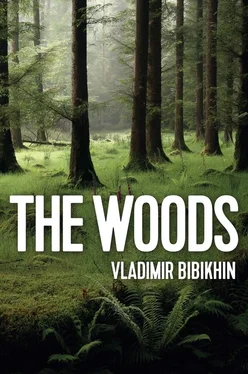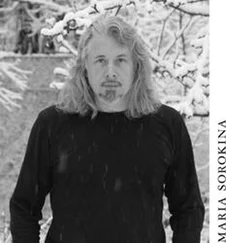Sexual reproduction, says Bibikhin, has an aesthetic explanation. It is a mechanism of inducing polar contrasts, which is not necessary per se for the preservation of an organism, but turns life into a complex and interesting gamble. The need for sexual activity, again, entrances animals, puts them into a state of what Bibikhin calls, with a Greek word, ‘amekhania’, loss of mind and of the capacity to move. But the condition is a clear-cut contrast, and the result, a strict law of repetition. When we then go into structural matters, we see a cruel, ‘harsh’ law of form, which governs the protein being and imposes a discipline, which then repeats itself in the law of instinct at the behavioural level (examples of birds and ants as captivated by cosmic tasks). There is thus a form found within matter itself (if we count life as an extended forest), and, moreover, I would suggest, based on Bibikhin’s argument, a certain dialectic of trance and law. Form imposes itself on matter under the condition of a hypnotic amekhania, through a fascinating game of contrasts.
Again, this argument is not only backed by extended exegetic exercises but also illuminated by strokes of subtle observation and virtuoso interpretations. In addition, it has an ethical aspect pertaining to what Bibikhin calls the ‘automaton’ of life, its spontaneous energy. No need to meddle with this automaton, let it work while it works; there is a need only to fine-tune it and to respect the iron laws which it at times imposes. However, the automaton, alias Sophia, captivates humans and sets before them a task of extreme and ambitious effort. The book was written at a time of violent primitive accumulation of capital in post-Soviet Russia, and while feeling no great empathy with its protagonists, Bibikhin nevertheless tried to do them justice.
Captivation and capture, captivation by capture, wit and wiliness are the only thing that works. Someone who can captivate and be captivated, capture the world and be captured by the world. [Darwinian] [a]daptation is essentially capturing the world in both these senses, and not necessarily only here on earth but also more widely. (This edition, p. 309)
This book by Bibikhin is perhaps his most overtly theological. Despite being a devout Orthodox Christian, he usually avoids explicitly speaking of God in his philosophy, treating him as something ‘unapproachable’, but here he makes an exception and actually discusses religion at some length. The forest, with its trance, is a site of natural religion, of a devout attitude to the mystery of life; it is also the site of the Cross, which was made of wood. The law of nature is, the author says, an immediate form in which grace is manifest. Life is sanctified and sanctioned by energy, of which a human ethical effort, a ‘yes’ to the world, is a part. The Russian word ‘saint’ (svyatoy) has a telling pre-Christian etymology of phallic tumescence.
One could say that Bibikhin’s book is a lengthy commentary on Baudelaire’s ‘Nature is a temple where the pilasters/ Speak sometimes in their mystic languages.’ 6 However, when finally considering God, Bibikhin says, after Feuerbach, that he is simply the human him/herself, but taken as the hidden Other in the human being.
By way of short commentary, I think that this book was partly an attempt to repeat and surpass the gesture of Heidegger, who in 1929–30, in The Fundamental Concepts of Metaphysics, 7 decided to ground his existential phenomenology in biology, but ended up reasserting a sharp divide between humans and animals which Bibikhin here, in contrast, seeks to undermine. The phenomenological conversion of matter, from a thing to environment, methodologically reminds us of Gaston Bachelard’s poetics of the elements. 8 The task of addressing the natural sciences from a philosophical point of view is extremely important, particularly now, with positivism on the rise in the life sciences. There are not that many authors who have done this. However, Bibikhin does not refer to the most famous of them, Henri Bergson. Sometimes his argument comes close to Bergson’s élan vital, to his serious consideration of the rational nature of instinct. Bergson, however, does not yet know genetics and does not make an aesthetic argument. The lack of engagement with Heidegger or Bergson, like the rudimentary nature of some of the notes, has to do with the fact that Bibikhin died early and, as I mentioned, did not have time to prepare the manuscript for publication.
This volume is the first book-length edition of Bibikhin to appear in English. I think we chose one of his best works for translation. It contributes to our understanding of the meaning of life: a fascinating spectacle set up in a cosmic amphitheatre for the potential audience of humans and gods-in-humans. It sets itself the ethical task of rehabilitating the scale of human ambition as a sanctioning instance of being. It contains an important discussion of genetic Darwinism and natural selection in the spirit of Continental philosophy.
In all this, it may leave a foreign impression on the English-speaking reader, not only because of its impressionistic methodology and ethical pathos (common in both contemporary Russian and French philosophy), but also because of its conservatism and the extent to which it is embedded in twentieth-century Russian thought. I think this is a ‘great book’, in terms of its ambition, of the richness of its content, of its brilliant style, and of the popularity of its author at the time of its public delivery. Even though written recently, it must be seen both as a contribution to current debates and as a monument of its own time and space, on which it bestows the sanction of memory, and even a certain grandeur.
Artemy Magun
Department of Sociology and Philosophy,
European University at St Petersburg, Russia
1 1.Vladimir Bibikhin, ‘Dlia sluzhebnogo pol’zovania’ [‘Restricted’], in: Drugoe Nachalo (SPb: Nauka, 2003), pp. 181–207.
2 2.Ibid.
3 3.Martin Heidegger, Introduction to Metaphysics, 2nd edition, tr. Gregory Fried and Richard Polt (New Haven: Yale University Press, 2014).
4 4.Bibikhin, Novyi Renessans (Moscow: Nauka, 1998), p. 321.
5 5.Ibid., quoting Dante, Letters, pp. 15, 39.
6 6.Charles Baudelaire, ‘Correspondences’, in Selected Poems, tr. Joanna Richardson (Harmondsworth: Penguin, 1975), p. 43.
7 7.Martin Heidegger, The Fundamental Concepts of Metaphysics: World, Finitude, Solitude, tr. William McNeill and Nicholas Walker (Bloomington: Indiana University Press, 2001).
8 8.Gaston Bachelard, Psychoanalysis of Fire, tr. Alan C.M. Ross (New York: Beacon Press, 1987); and Water and Dreams: An Essay on the Imagination of Matter, tr. Edith R. Farrell (Dallas: Institute of Humanities and Culture, 1999).
The ancient Greeks’ awareness of wood as a versatile substance which could be consumed by flame to produce different forms of energy ensured that the term ὕλη (hyle, wood, timber, forest) should be adopted to designate matter. Facilitating its adoption was the use of the term in ancient medicine, hence in biology. With its non-metric space (notions of the biological cell as a tropical forest), through imaginings of a primaeval, hairy human living in the forest, through the mythopoiesis of the World Tree, through the return of our contemporaries (who have turned their backs on nature) to such surrogates of the forest as wine, tobacco, and narcotics, hyle is far more present in the daily reality of modern humans than we care to admit.
The powerful presence of the forest is underappreciated. It is to be found in the philosophical concept of hyle (matter) in religion and theology (the Cross as World Tree), and in poetry (in images of the tree, the bush, and the garden). We are surrounded by the forest, and what seems so personal to us, our own thinking, is no less affected by it than are our bodies. The forest is all around.
Читать дальше












